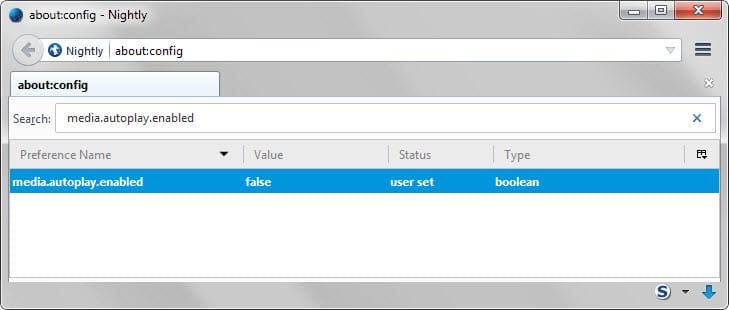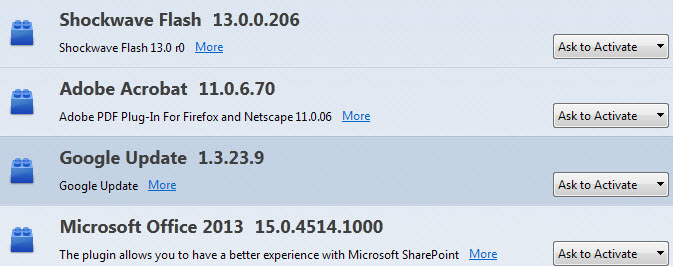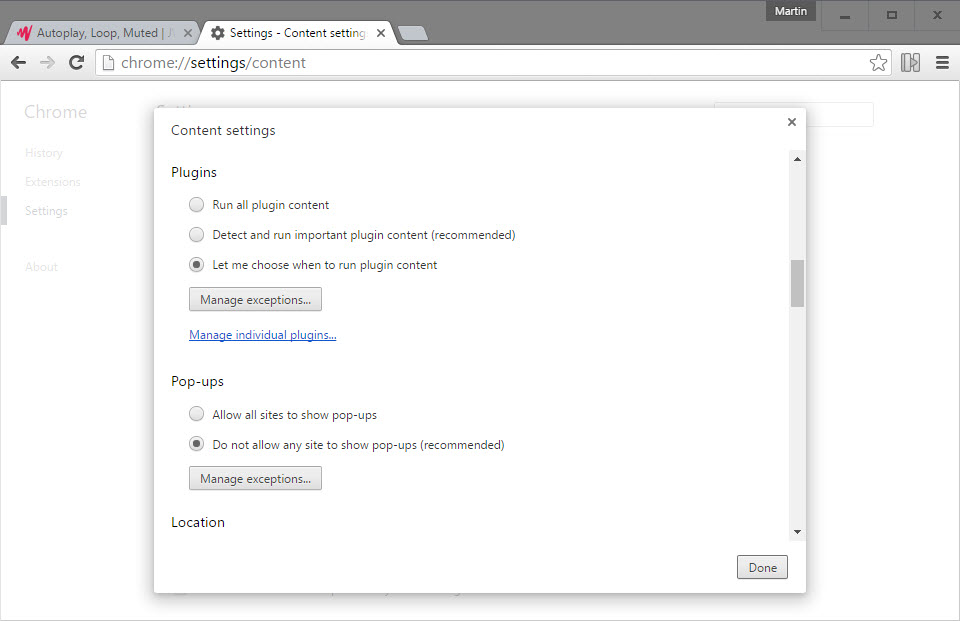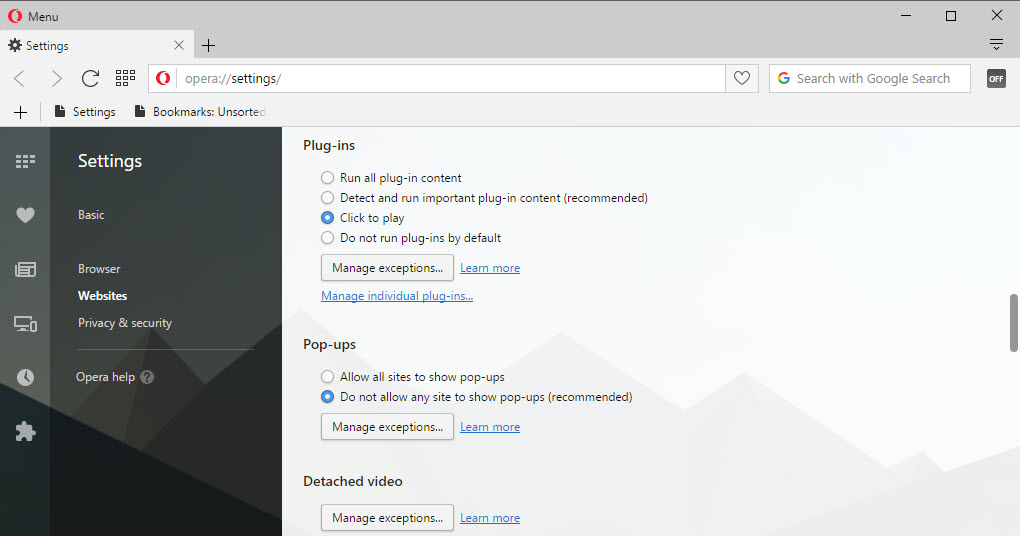How to disable automatic video playback in popular browsers

With the development of the Internet and the increase in the average access speed, many site owners consider it acceptable practice to automatically start playing a video immediately after the page loads.
However, not all users agree with this policy. Users who disagree with this, who considered the sites with music to play them in bad form (and were in the 90s - 00s and such), now consider that the video should not be launched automatically, but only started at the user's request.
')
Automatically starting a video can lead to a waste of traffic (which the user might like to avoid), a decrease in bandwidth, and an inappropriate loud sound. And although even in Firefox, tabs that currently make sound are marked, this behavior of browsers seems uncomfortable to some users.
Especially for them, blogger Martin Brinkman [Martin Brinkmann] has prepared a selection of ways to ban automatic video playback for different browsers. Included are videos using Flash and HTML5 variants.
Firefox and HTML5
What is nice, Firefox has settings for blocking autorun video without the need for plugins. In the case of HTML5, setting in about: config will help you. You need to load this page, find the media.autoplay.enabled setting and switch it to false

Firefox and Flash
To prevent Flash-based videos from launching automatically, you can download the extensions page, go to the “plugins” page and change the Shockwave Flash setting to “ask to activate” (always ask before launching).

Chrome and HTML5
In Chrome, there are no settings to disable autorun. This can help plugins, but only in the desktop version - because mobile Chrome does not support plugins, its users still can not get rid of this scourge.
On the desktop, you can use the Disable HTML5 Autoplay and Video Autoplay Blocker plugins.
Chrome and Flash
To disable flash video, you need to load the chrome: // settings / content settings, find the plugins section there and switch the settings to “let me choose when to run plugin content”.

Opera and HTML5
Opera is based on the Chromium / Blink engine, so the situation with it is similar to the situation with Chrome. To block HTML5-based videos, you can use Disable HTML5 Autoplay and Video Autoplay Blocker plugins.
Opera and Flash
To disable flash video, you need to load opera: // settings, switch to “websites” in the menu on the left, and switch to the “click to play” option in the “plugins” section.

Internet Explorer / Microsoft Edge
In IE, there is no way to configure auto-show video - you can only completely disable Flash. It is hoped that when plugin support appears in Edge, Chrome plugins will be ported for it.
Vivaldi
The new browser Vivaldi is based on the Chromium / Blink engine, so all the settings and plug-ins in it work exactly the same as in the Chrome browser.
Update: unfortunately, in the Firefox browser, if automatic video playback is turned off, it starts to play YouTube videos (in HTML5 mode).
Source: https://habr.com/ru/post/393699/
All Articles